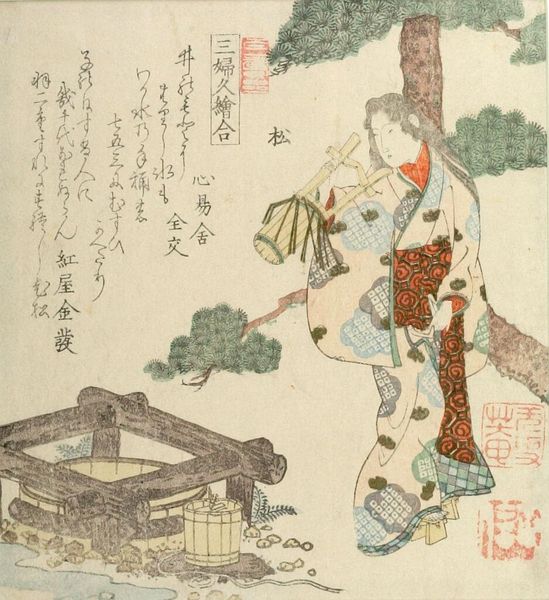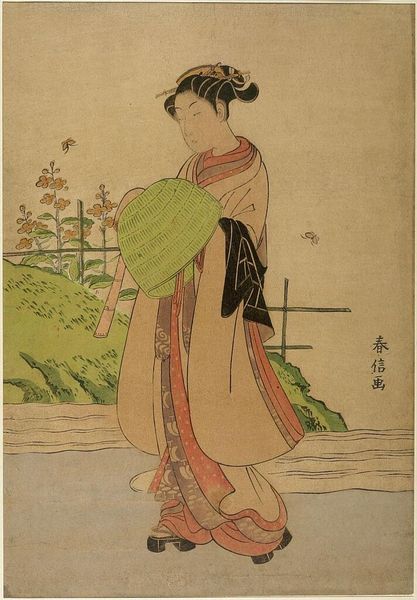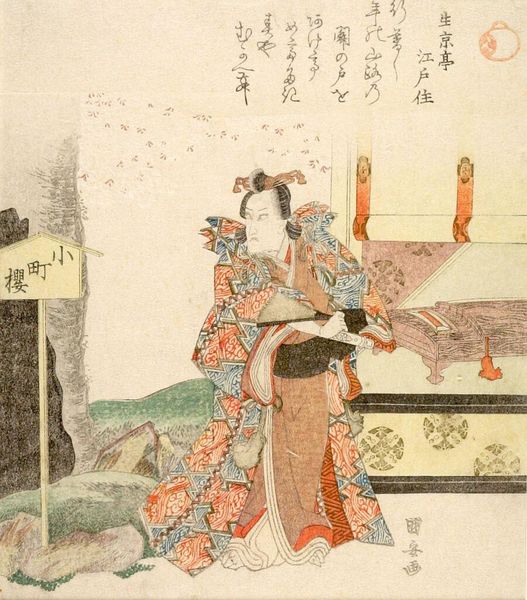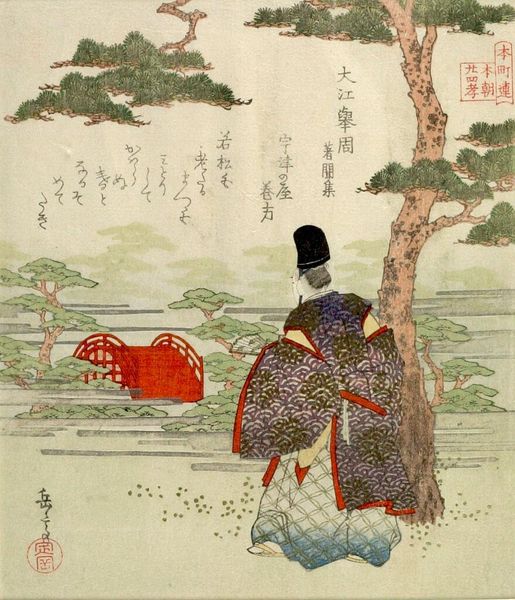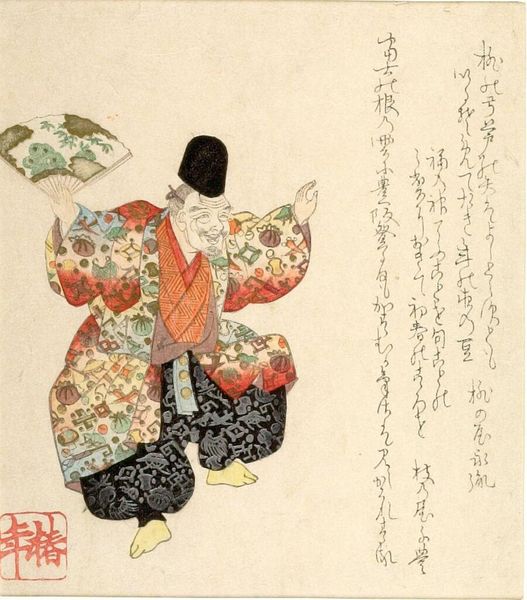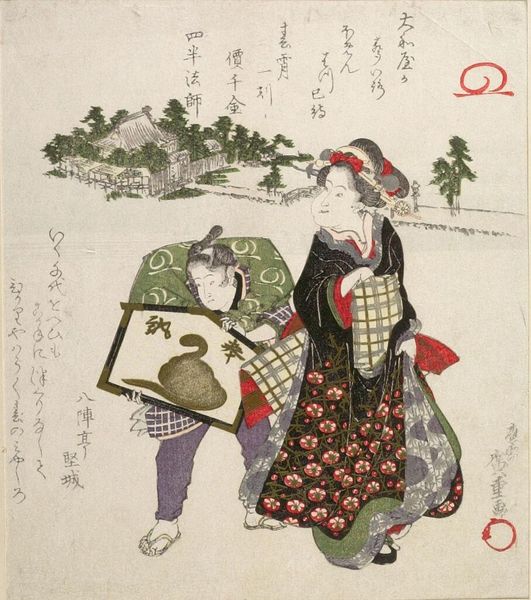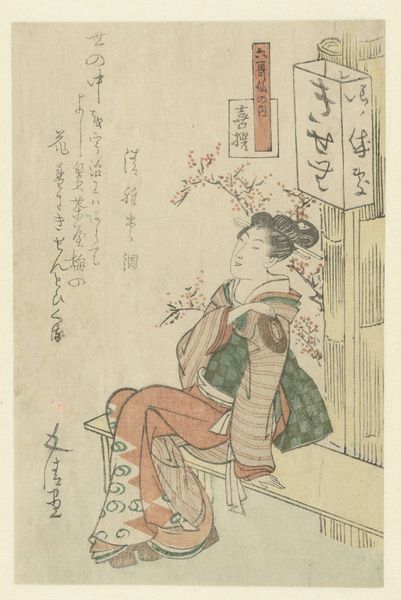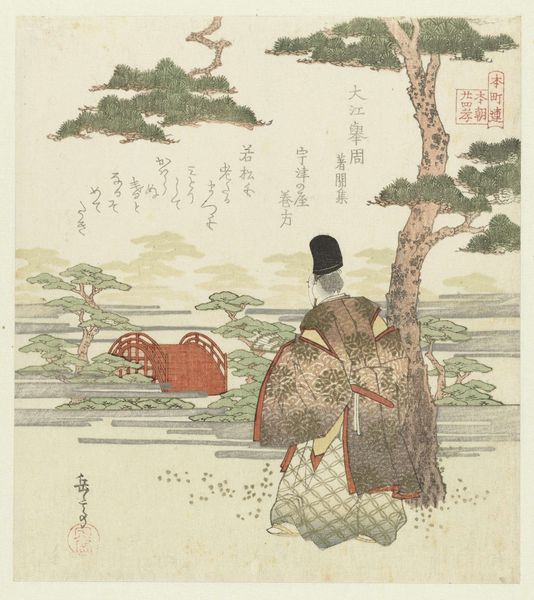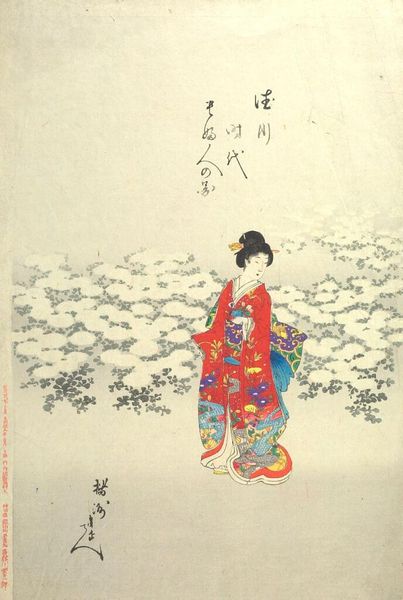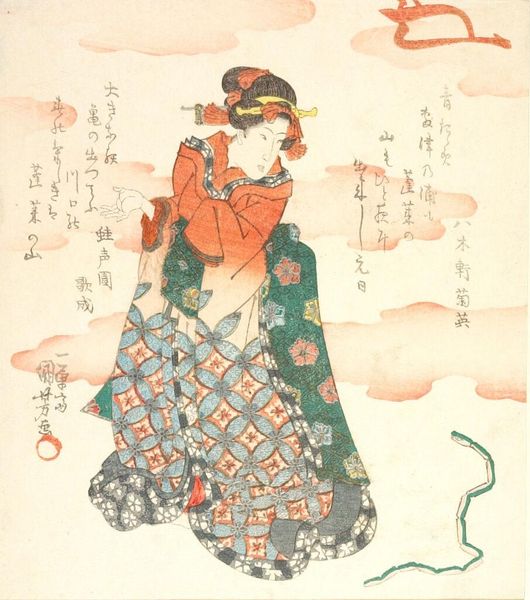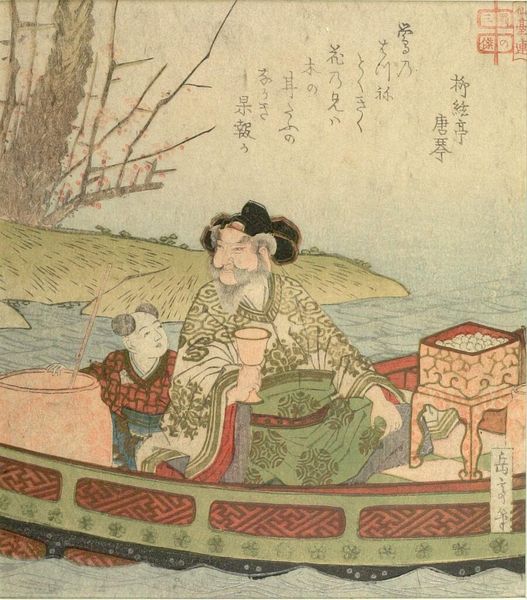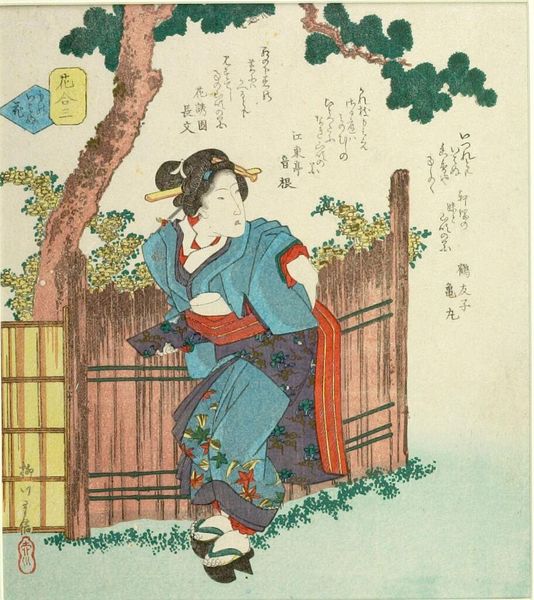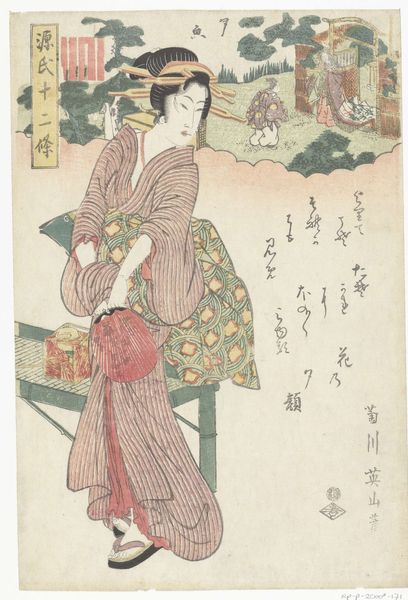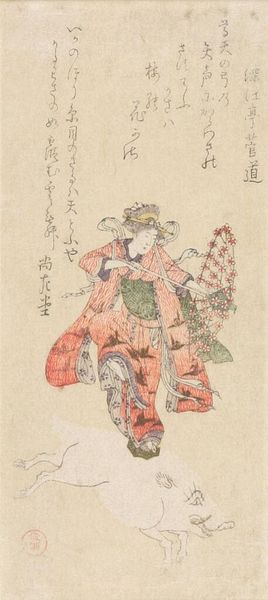
Marube no omi Akimaro (Shoku NihonkÅki), from the series Twenty-Four Japanese Paragons of Filial Piety for the HonchÅ Circle (HonchÅren honchÅ nijÅ«shikÅ), with poems by Makinoya Naritsura and GyokushÅsha Bunko c. 1821 - 1822
0:00
0:00
Dimensions: Paper: H. 20.6 cm x W. 18.0 cm (8 1/8 x 7 1/16 in.)
Copyright: CC0 1.0
Editor: Here we have Yashima Gakutei's print from the series "Twenty-Four Japanese Paragons of Filial Piety". It depicts Marube no omi Akimaro and I'm struck by how the figure is both grounded and somewhat detached from the landscape. What draws your eye in this work? Curator: Notice the intricate patterns on Akimaro's robe, juxtaposed with the simple lines of the house. These patterns signify status, but also a kind of cultural memory. The filial piety theme carries weight – a symbolic continuity of respect for elders. How do these symbols resonate with you, considering contemporary values? Editor: I see how the imagery connects to cultural values, it gives the artwork a deeper meaning. I hadn't considered that before. Curator: It is a window into a different time, inviting reflection on what endures.
Comments
No comments
Be the first to comment and join the conversation on the ultimate creative platform.
